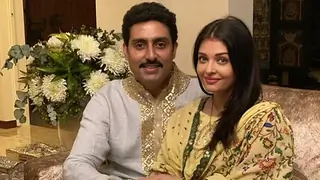Democracy and Nationalization of Higher Education
Shree S. Vinekar, M.D.
"Life, Liberty, and The Pursuit of Happiness," and "EQUALITY", of course -- These are the fundamental rights and the virtues of democracy. Over the last few centuries many civilized democracies have attempted to redistribute the national and individual wealth to reduce inequalities in their populations. This is accomplished through taxation, increasing national productivity, industrialization, and other peaceful measures. Pundit Jawaharlal Nehru chose the path of socialism for India. Shri Vinoba Bhave attempted to redistribute land. There are many peaceful measures to uplift the deprived and the disadvantaged, and, as such, these are all noble efforts. Over the last fifty eight years in "Independent" "India that is Bharat," such gradual efforts to combat poverty have succeeded, to some degree, in spite of the rapid population growth. In keeping with all the progress and successful reforms, India's politicians and policy makers say, "NOW IT IS TIME TO REDISTRIBUTE THE EDUCATIONAL OPPORTUNITIES on a larger scale than ever before." On the surface, it sounds like a very noble objective, designed necessarily to redress the injustices of the past. It is high time that the evils of caste system or even the caste system itself be entirely overthrown in modern India. There seems to be no justification for such system in the modern world that is going through global shrinking. For seekers of the vote-bank, however, overzealous "affirmative action" is indeed an opportunity to appease the "minorities." Politics is now directly entering the universities and institutions of higher learning.
What is different about these just and noble sounding thrusts? The OBC reservation and quota system is an imposition on the current higher education systems both private and public. What is different about this protectionist proposal is that many deserving, hard working, meritorious students not belonging to OBC, classified as OC, both rich and poor, will be deprived of opportunities to further their careers that they have earned through their hard work and merit. Instead "their" "SEATS" in the universities and other institutions of higher learning will be offered by RESERVATION POLICIES in large numbers like 49 TO 70 PERCENT to students, for many of whom the only qualifications and admission eligibility may be their scheduled caste or minority classification, and not their merit nor their lower socioeconomic level. Needless to say that many students from the so-called "creamy layers" the well-to-do of OBC classes will claim access to these seats based upon their caste rather than merit. Significant number of non-deserving OBC students lacking merit will displace many deserving and meritorious students of the OC class as there are no current plans to sizably expand the current absolute number of educational opportunities or seats. This is the price the new generations of the OC class have to accept to pay to undo the injustices perpetrated by their past generations! Fair enough? Why do these OC brats whine and threaten to commit suicide when they lose opportunities, while their underprivileged brethren have lost a myriad of opportunities for many generations because of their caste, it may be asked.
There is a basic fallacy that underlies this policy. It views the "SEATS" in the universities as if they are equivalent to ownership of land or property, guaranteed by the phrase "Pursuit of Happiness." By generously offering the "seats" to the non-meritorious underprivileged it is assumed that the recipients of these seats will graduate (and no doubt some will be sincere, hard working, students and will graduate with distinction) and acquire the necessary knowledge base and skills given simply an opportunity to progress in the educational field of their choice. This is a simple minded selling point for the proposed policy. Educational opportunities, when made available to meritorious and deserving students of all classes and castes, no doubt, enable them to acquire cognitive abilities but COGNITIVE ABILITIES CANNOT BE REDISTRIBUTED. Moreover, if such attempt to redistribute is made, it will be a caricature of communism in the intangible domain of educational psychology. During fifty eight years of social and educational experiment with 15 to 27 percent of total seats allotted to OBC students, one would assume the Government or the Ministry of Education would have both demographic and achievement related accumulated data to arrive at intelligent, scientific, and evidence based recommendations to uplift the deserving students of the OBC class. Such recommendations with altruistic and philanthropic intentions as well as for "social engineering" purpose will be welcomed by any and all reasonable and thoughtful people. Arbitrary imposition of numbers for reservation and quotas on all educational institutions and private employers without regard to any logic or evidence based results of past social and educational experimentation in this area of social reform, however, would lead to questioning the motivation of the politicians. Even the most developed older democracies of the world have their large sections of society that are not privileged to partake in higher education, not because of caste or class, and not even because of economic background. Some democracies are well endowed to provide free education and/or generous scholarships to their meritorious underprivileged students. Yet, not all are either equipped with prerequisites or are motivated to learn. Uneducated and/or undereducated sections within the society do not necessarily reflect discrimination of the minority by the majority. It must be clarified that this fact alone is not a justification for deliberate discrimination and deprivation of educational opportunity for low income meritorious students on any basis, caste, creed, color, or socioeconomic background.
OPPORTUNITIES FOR HIGHER EDUCATION SHOULD BE EQUAL FOR ALL. However, while these opportunities must be made available to all deserving students on the primary basis of merit, some concessions and allowances need to be made for the underprivileged by lowering the admission standards to facilitate their entry. That is, certain admission standards of most educational institutions understandably need to be lowered for those underprivileged students who show promise, but in whose case if it can be determined that they may have earned somewhat lower marks due to their social and economic circumstances. Sincere efforts must be directed to focus on minimizing, and if possible, eliminating cheating and fraud in the educational testing systems to ensure that merit is authentic, if all admissions to higher education are merit-based. There will need to be monitoring system in place to ensure compliance with regulations ensuring non-discrimination and affirmative action in the educational system.
Those who need scholarships based on their lower economic status would best be served by providing financial assistance or educational loans that could be written off, if their performance and achievement meet certain expectations. And, even then, such concessions must be contingent upon sustained satisfactory performance in their studies, e.g., minimum level of performance must be maintained for a set number of consecutive terms in order to qualify for the waivers. In this manner the deserving students of the minority class can be better served to bring about the social reform.
Such policies for social reform implementing affirmative action in higher education to raise the educational levels of the underprivileged are laudable and all political parties will welcome and endorse such policies. One of the goals of education is also to foster broad-mindedness to maintain harmony and cohesiveness within the society at large. Unfortunately, the self-serving interests of some political parties and their alliances to appease the vote-banks will only further divide and fragment the already fragmented society.
The transparent motivation for such short-sighted and self-serving reform is to create an increasingly manipulative spiral trend wherein the underlying intentions of any future policy will be more heavily weighted on how it will keep the party in power rather than how it will inherently help the society as a whole. Therefore, over time the political party in power desiring to sustain this authority, will exploit the current inequality in the educational status of the minorities for its political gains, implementing such policy designed purely to consolidate and maintain its position of control. As such these power politics motivated exploitations of all kinds of rifts in the society based on castes or other identities are not new tactics in politics. Unless all Bharateeyas wake up and view themselves as ONE FAMILY, such tactics of ripping apart India more than what the colonial rulers and missionaries have done over the centuries by coming into the country and instigating hostilities between different castes and social classes will be perpetrated unchecked. If united to gain political power, the majority in India will become truly independent at last after thousand years. Ultimately and in the long-term, social progress will be stunted or even halted by ill designed social reform of reservation and quotas which in reality is calculated to create more rift between the minority and majority than there ever existed. Any social reform whether affirmative action or social welfare projects must lead to social progress that is allowed to grow into an increasingly beneficial and self-sustaining feature of India's further growth as a world power. Any social reform that further divides and weakens the very fabric of Indian society is inimical to the progress of Bharat.
The best way to eliminate inequality is to create an even playing field. One possible way to do this is by stressing the implementation of policies to ensure free and easy access to elementary and secondary education and high quality academic experience to all children. Such college preparatory education needs to be made available to all children. The bell-curve will again show that, given the basic opportunities, within all classes, (poor and backward as well as the rich and privileged), will be found a few students in the extremely high achieving range who will merit admission to institutions of higher learning. There are many "Institutions of Excellence" competing in the world educational industry that may be best left alone to select only the best but required to be non-discriminating. Some professions allow only a very narrow margin of error in their work. For example, neurosurgeons and ophthalmologists or nuclear physicists, higher level Information Technologists and experts in artificial intelligence, etc., are not to be chosen on the basis of their castes. As these prerequisite policies to uplift all lower socioeconomic class children to qualify them for higher education are put in place, fair and just policies addressing admission requirements to higher educational institutions of excellence should be effected concurrently to retain their pride of place in the country and also internationally. These private institutions of higher education need to be given free reign to select the best candidates and compete at the international level. Private industrialists, entrepreneurs and technocrats will thus have an incentive to fund and finance their own educational institutions that do not depend on the Central government financing and yet excel. These institutions could feed their own enterprises while they select their students purely on merit without any discrimination. If the burden of bureaucracy becomes excessive they may set up their institutions outside the country.
The economically disadvantaged must be given free tuition and scholarships. The admissions to the universities and higher education need to be merit based and should present as equal-opportunity for the rich and for the poor, the majority and the minority. Significant allowances may be made to redress the injustices of the past for the meritorious students of the disadvantaged classes. Examples would be arranging free room and board, pocket money, books and journals, special tutoring and instructions to bridge the gap with the advantaged students, etc. and not merely giving OBC students an admission to a college. However, let it be stressed that the principal intent behind any and all educational policies should be for the good of the students, themselves, and for the progress of Indian society, as a whole. And, above all, at no time should India's youth be used as a political weapon wielded by the parties to further their vote-bank agenda. Good democracies help facilitate the evolution and progress of societies, and do not instigate revolutions. If care is not taken to ensure that educational structure, and policy-making, benefit the student first, and not the political party's ability to sustain its position of power, then India could very well be faced with a slow but powerful transition from "the world's largest democracy" to a state of despotism disguised as a democracy.
The allotment of a significantly large number of seats to less than meritorious minority students by reservation, especially if it is at the expense of other well-deserving students, will not result in directly proportional and significant increases in the number of highly educated intellectuals or professionals in the underprivileged classes. Neither do social promotions and the offering of phony degrees lead to a better educated or highly technically skilled population that is prepared and ready to compete in the global market. Rather, another possible solution that should be considered is for the government of India to first empower the minorities to start special universities and institutes of higher learning for their students. This enables educators and policy makers to better monitor and evaluate the progress and performance of these segments of the student population in comparison to the national standards before inundating the present classrooms filled by meritorious students with low achieving minority students. In all fairness such minority sponsored educational institutions will then be required to enroll a sizeable section of "majority" students in their student bodies on merit basis, if India is viewed as one family that is truly secular.
India is on a winning path, gaining increasing respect as a world presence. The reckless policies in the educational domain, with hidden political agenda secretly embedded throughout, will sabotage India's progress in the world market. From this point of view, the reservation policy and the quota system in higher education is a prescription for failure, both in the economic domain and in the domain of social reform. Besides, the rifts created by such policies will be capitalized upon by the political parties endorsing such reform for corrupt gains in the ensuing elections, and will simultaneously be sacrificing the futures of a large number of bright and deserving, hard working, meritorious students who will unnecessarily harbor bitterness in their hearts.
However, it must be strongly stressed that violence and revolution are not viable or even acceptable answers. Self-immolation, suicides, etc., are not constructive solutions. Eccentric fanatic speeches and weird or violent comments on the web-sites for free _expression of hostilities directed at the majority or the minority are only indications of social immaturity, besides discrediting the web-site of "Youth for Equality." Political dialogue, debates, facilitation of widespread awareness of the issues, and the bringing about of changes in the voting patterns: these are more adaptive democratic strategies. As regards the advocacy for the undeserving non-meritorious students of the underprivileged class, the political parties will probably gain some votes, but, this will lead to not much else as far as the betterment of the society.
Instead of educationists advising the politicians regarding educational policies, it seems that the politicians are advising the educationists. This trend, if it continues, will eventually irreversibly and irreparably weaken our nation's economy. The caring and concerned, compassionate, youth is emerging to begin a "Bharat Abhyudaya Yajnya" in a typical Bahrateeya peaceful manner on a national scale, viewing it not as a "kranti" but rather as an "utkranti," with heartfelt love for the poor and the downtrodden. Good education for all deserving Bharateeyas should be the primary objective to be accomplished through this Yajnya.
II Vande Mataram II




















